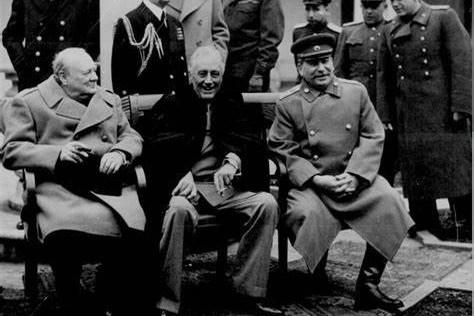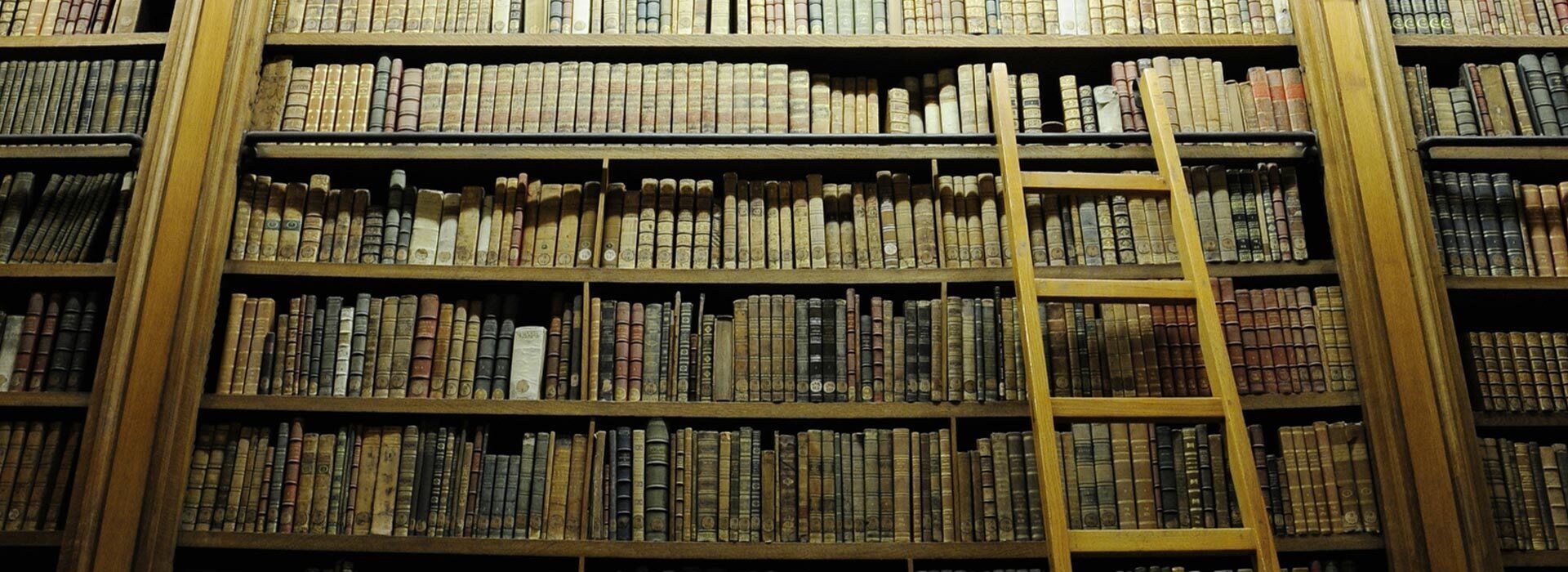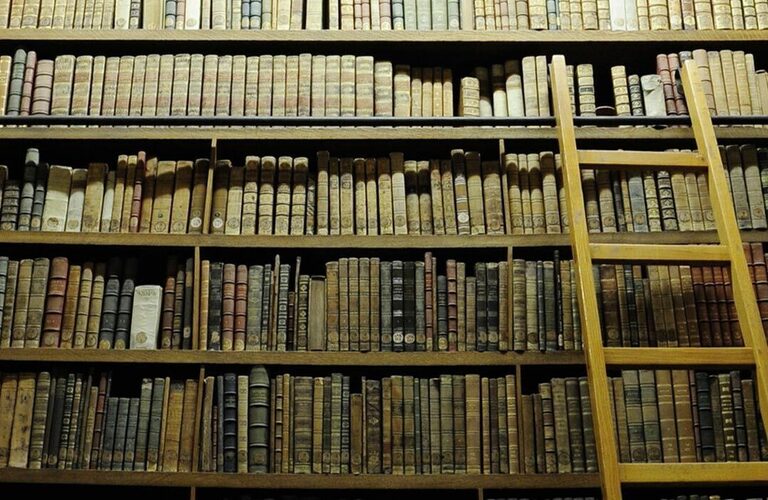
posted 11th June 2023
World War Two has gone down in history as an epic struggle between good and evil. The good, represented by the allies, and the bad, represented by the axis. The crimes of the axis powers, especially those of Hitler’s Nazi Germany, gave the war an almost Hollywood feel. Almost like a Shakesperean drama the key cast members played their parts with precision. Hitler, the epitome of genocidal evil, Mussolini, the charismatic actor taking a turn towards tyranny, Stalin, the devious demagogue flipping sides with ease, Churchill, the man with the great man syndrome and Roosevelt, the begrudging alleged saviour of something that could be described as civilised in a world turned upside down as well as inside out. But, contrary to what many believe about this war, the tale is far deeper than a simplistic tale of a clash with the dark forces of human nature. It is a story of political intrigue, unusual alliances and tensions amongst supposed friends and friendships amongst supposed enemies.
Adolf Hitler was a committed opponent of Communism since his political awakening at the end of World War One. His hatred of the Reds was well spelled out in his book ‘Mein Kampf’ and his obvious want to fight a war with the Soviet Union was clear in the words he wrote and the words he spoke. Josef Stalin had been a committed Communist since his political awakening in his late teens. He was training to be a Priest but at the seminary in the Georgian capital Tbilisi he devoured the banned books of German Philosopher Karl Marx. Stalin was as fanatical about Communism as Hitler was fanatical in his hatred of Communism. The two great dictators of the 20th century were opposites when it came to ideology.
By the mid-1930’s these two implacable ideological enemies were firmly in charge of their nations. Stalin had succeeded Lenin in the mid-1920’s after the overthrow of the Russian Monarchy and Hitler had become German Chancellor in 1933. Anti Communist propaganda in Germany and anti fascist propaganda in the Soviet Union were part of the cause as relations between the two were at best frosty. Trade did happen to the mutual benefit but the ideologies of the two nations could never coexist. In the mid-1930’s Stalin was alarmed enough to attempt to build an anti-Nazi pact with the western democracies, namely Britain and France. France seemed like Stalin’s best bet as Hitler had hostile views of France because of events during and after World War One. This attempt by Stalin never came to fruition but, with Hitler pursuing a more aggressive foreign policy masked by claiming to only want to rectify the wrongs done to Germany under the Versailles Treaty, Stalin desperately needed friends outside the Soviet Union. He would get one from a very unlikely place.
As tensions grew between Germany, France and Britain Hitler needed assistance from his greatest ideological enemy, Josef Stalin. Hitler wanted to secure access for Germany to Polish territory and this was something that the allies weren’t going to accept. Hitler needed to ensure he wasn’t dragged into a two front war if the allies decided to fight and so, in August 1939, German Foreign Minister Joachim Von Ribbentrop and Soviet Foreign Minister Vyacheslav Molotov signed a non-aggression pact in Moscow. This pact is one of the most bizarre in the history of diplomacy. These two great ideological enemies were now official allies and when Hitler ordered the invasion of Poland with the German army invading from the West the Soviets invaded the country from the East. Not only were they now allies, however uneasily, Hitler and Stalin were now invading countries together and imposing their respective political systems on large parts of eastern Europe.
The alliance between Nazi Germany and Soviet Russia was spectacularly ended when Hitler broke the non-aggression treaty and invaded the Soviet Union in June, 1941. This action would throw together another unlikely alliance between two bitter foes. British Prime Minister Winston Churchill was totally opposed to Communism. He had described Soviet ideology as ‘the baboonery of Bolshevism’ and had wanted an international intervention in the Russian Civil War on the anti Communist side. He and the arch Communist Josef Stalin were now on a path to a partnership as they both struggled to contain Hitler’s forces. Churchill and Stalin met face to face in Moscow and the tension between them was palpable. After their first meeting Churchill threatened to storm of back to London but was talked out of it by the British Ambassador Archibald Clark Kerr. After a series of meetings, the atmosphere started to warm as they both came to the realisation that they needed each other if Hitler was to be defeated. After a night drinking and dining in Stalin’s apartments at the Kremlin Churchill headed back to London and another of World War Two’s unlikely alliances had been formed.
In December, 1941, the Japanese launched an operation to attack the American Fleet at Pearl Harbour. The Japanese took the Americans by surprise and successfully destroyed much of America’s Naval power. After the attack President Roosevelt declared war on Japan followed shortly after by Winston Churchill on behalf of the British. German Dictator Adolf Hitler sided with his ally Japan and declared war on the USA contrary to the widely held belief that the Americans declared war on Germany. The Americans had now entered World War Two and needed to form an alliance with the great enemy of Capitalism, Josef Stalin.
The USA had always taken a strong anti Communist position. FBI founder and director, J Edgar Hoover, was obsessed with searching out Communist infiltrators and the USA sent a force to fight against the newly formed Soviet Union during the Russian Civil War. Now, with the USA embroiled in a war with Japan in Asia and, following the German declaration of war, they needed an alliance with the Soviets however much they might have detested Soviet Communism.
Two competing power blocks had emerged in the world by the end of 1941. The Axis, Germany, Italy and Japan, and the Allies, USA, Britain and the Soviet Union. Within these alliances there were tensions and dubious friendships. Britain and the USA had never been on the friendly terms that many seem to believe. After World War One the USA had imposed the 1922 Washington Naval Treaty which restricted naval construction. Britain’s Navy was a vital source of its national power and having to restrict production was a serious blow to its global position. Both Britain and the USA were very anti Communist but now found themselves aligned to an arch Communist, Josef Stalin.
Adolf Hitler was dedicated to his vision of a racially pure German people. He’d viewed German Jews, homosexuals and gypsies as having no part to play in the Germany he was trying to build. In 1942 the German racial policy took an extreme turn. Previously the idea had been to deport the Jews and others to other parts of the world, but the policy of extermination was ordered instead. There’s no surviving proof that Hitler himself ordered the extermination of groups deemed a threat to the German Volk, but the policy was such an evil one that those responsible always tried to distance themselves from it. By the end of the war roughly 5 - 6 million Jews had been murdered in concentration camps such as Auschwitz, Treblinka, Bergen-Belsen, Mauthausen and Dachau. This extreme antisemitism was in stark contrast to the Italian fascists where discrimination against Italian Jews never reached the genocidal levels of the Third Reich.
World War Two came to a spectacular end when the USA became the first, and currently only, country to use nuclear weapons when they attacked the Japanese cities of Nagasaki and Hiroshima. Adolf Hitler had committed suicide at the end of April, 1945, with Soviet forces only a mile away from his Berlin bunker. World War Two produced some very unlikely alliances. Old enemies from the capitalist and communist worlds united, fascists and communists found themselves invading countries together, old rivals such as the USA and Great Britain pulled together, and the world would never be the same again with the postwar collapse of European Empires and the emergence of the USA and the Soviet Union who would compete against each other for the rest of the 20th century.




